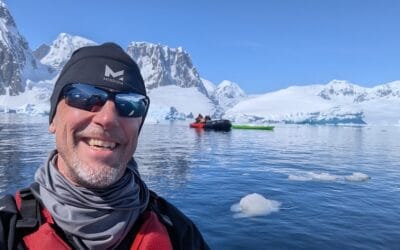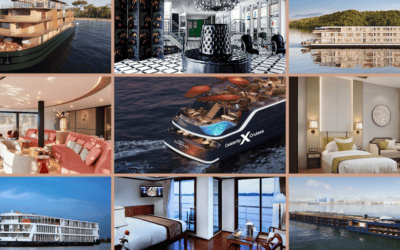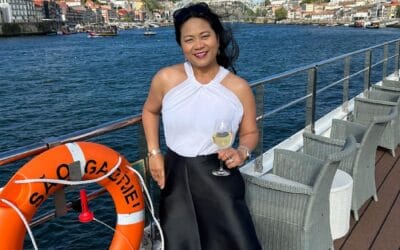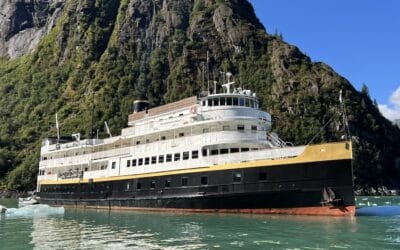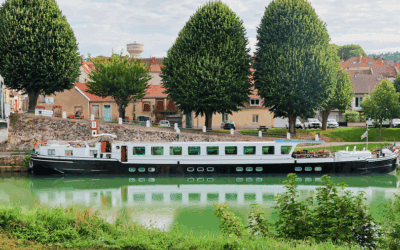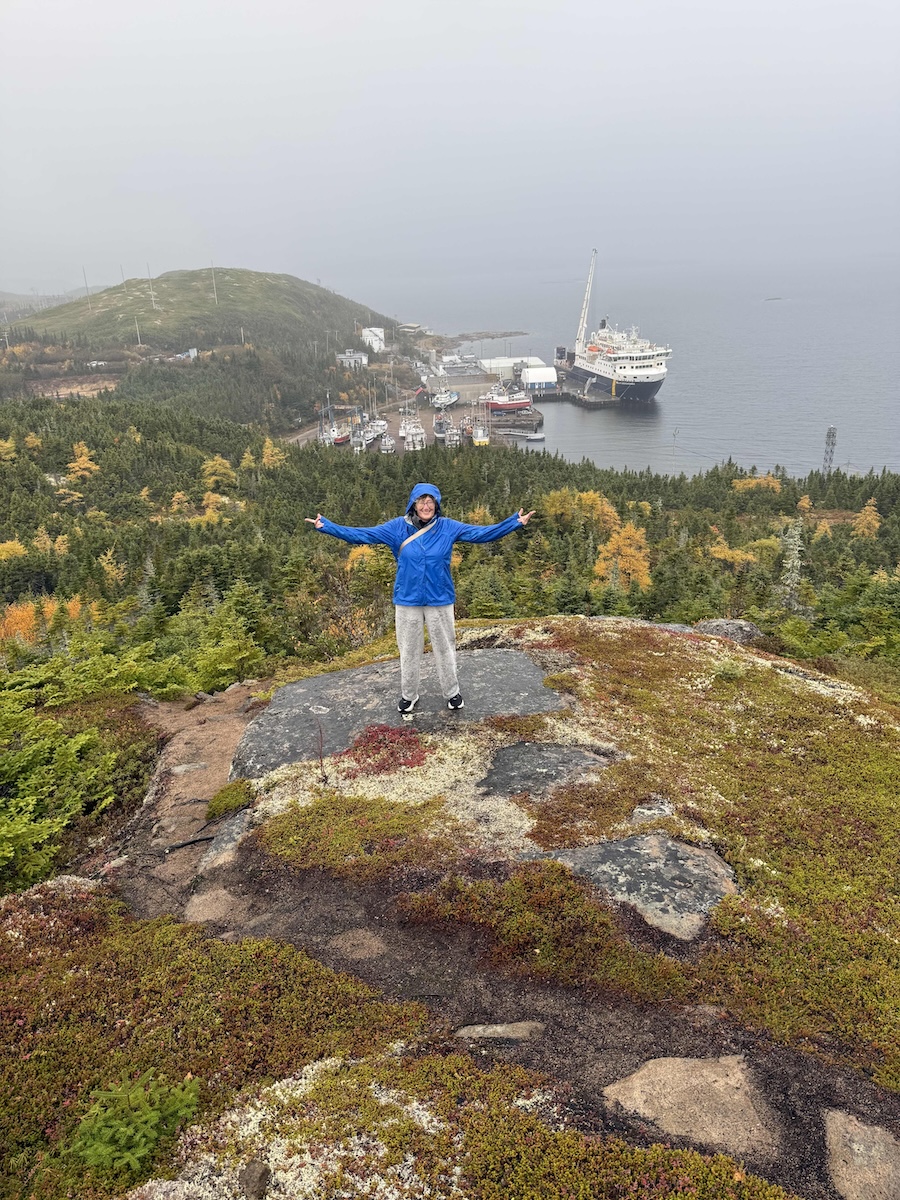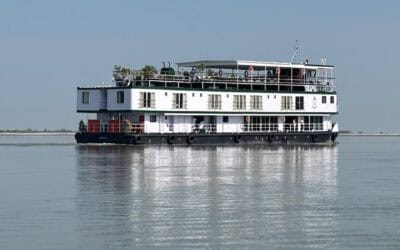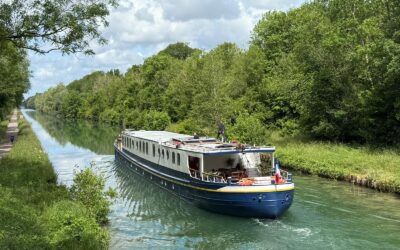International Cruising
By Ted Scull.
Years ago before I settled down to gainful employment, I planned a seven-month west-about trip around the world using eight scheduled passenger vessels that flew the flags of a half-dozen countries. Passenger counts ranged from 25 to several hundred, plus most ships carried general cargo. The one exception was the transatlantic liner SS France that counted 2,000 aboard, plus mail but no cargo.
The itinerary starting in the US, continued to Japan with stopovers in Hong Kong, Southeast Asia, India, the Seychelles, East and South Africa, England and a return by sea to New York. Some sea voyages were linked by train such as Bangkok to Singapore and Madras (now Chennai) to Bombay (now Mumbai).
During this January-to-July adventure, with the sea portions totaling 70 days, I encountered Americans (Yanks) on only two of the eight ships, one single soul on the French ship SS Laos from Hong Kong to Bangkok, and then as expected, many hundreds aboard the SS France from England to New York.
SUBSCRIBE to QuirkyCruise.com for updates and special offers.
Chinese & Japanese
Was that a problem? Not at all, or nearly so, aboard the SS Oriental Pearl on a 10-day passage from Yokohama to Hong Kong. Passengers were Chinese or Japanese and at the first meal, I knew which place was mine as it was the only one set with a fork and knife. I had never used chopsticks but I asked to have the cutlery replaced. Big mistake.
While the other passengers pretended not to stare, they couldn’t help themselves. I ended the meal still hungry with food still on my plate. Happily, the Hong Kong Chinese chief steward, who spoke excellent English, rescued me by suggesting I stay back and share dinner and a chopstick lesson with him.
We both had a passion for Scrabble, and with British and American English words and spellings permitted, we played daily when at sea, quick to cover the words with our hands when the ship took to rolling. He won most of the time.
The only other person aboard who cared to speak English was the bartender, a young Chinese my age who had worked for the U.S. Army in the Philippines. His exceedingly thick accent took time getting used to, but we spent fun times ashore together in Japanese and Taiwanese ports.
I ate foods that I had never seen before, but mother said try everything once, so I did and much enjoyed the adventure.
Happily, nothing I ate disagreed with me.
Indians (South Asians)
On an Indian ship crossing the Bay of Bengal (8 days), almost all passengers were South Indians and the Europeans numbered 12, all overlanders my age who were making the well-traveled trek by surface (bus, ship and train) from Australia to Europe. As one was not permitted to cross Burma (Myanmar) by land, they had go by ship if staying with surface travel, including hitchhiking.
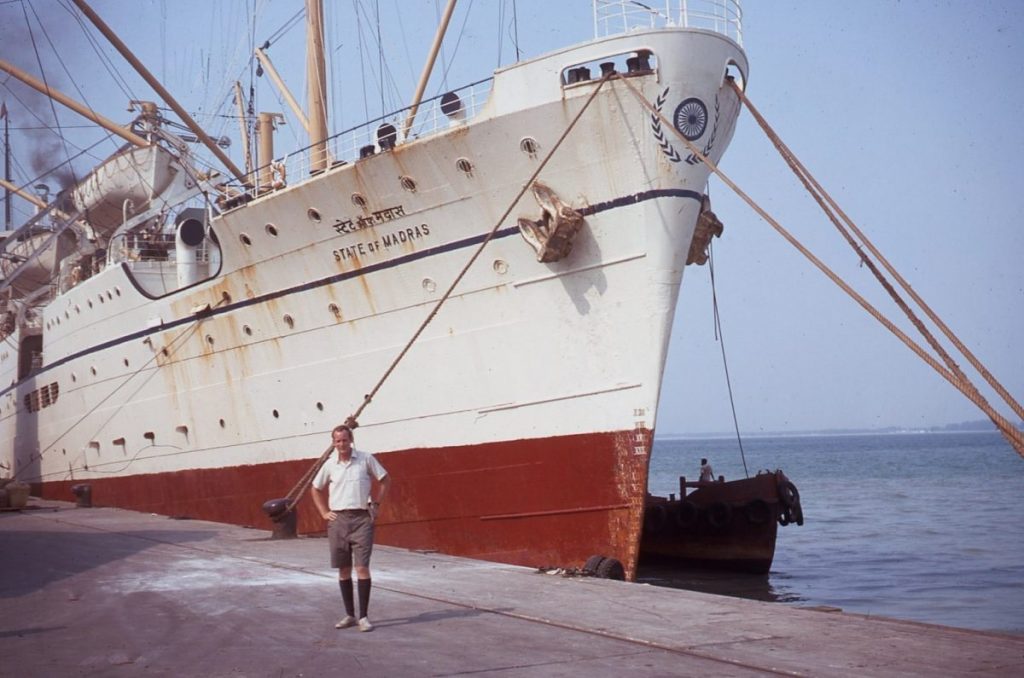
TSS STATE OF MADRAS, owned by the Shipping Corporation of India operated between Singapore, Malaysian ports and South India (Madras).
All spoke English as did many of the Indians, and we played Scrabble with some of the officers when they were off-duty.
My cabin mate turned out to be a delightful Indian bookstore owner living in Singapore, and we had nighttime conversations before drifting off to sleep.
I could have flown but money and the absence of any cultural experience easily nixed that. These first two ships were complex (to me) foreign floating countries. All in all, a great experience.
One Remote Island Chain
The stopover in the Seychelles, before airport access, required a minimum of two weeks until the next ship appeared, and I learned a lot about how this ever-so-isolated British colonial dependency operated.
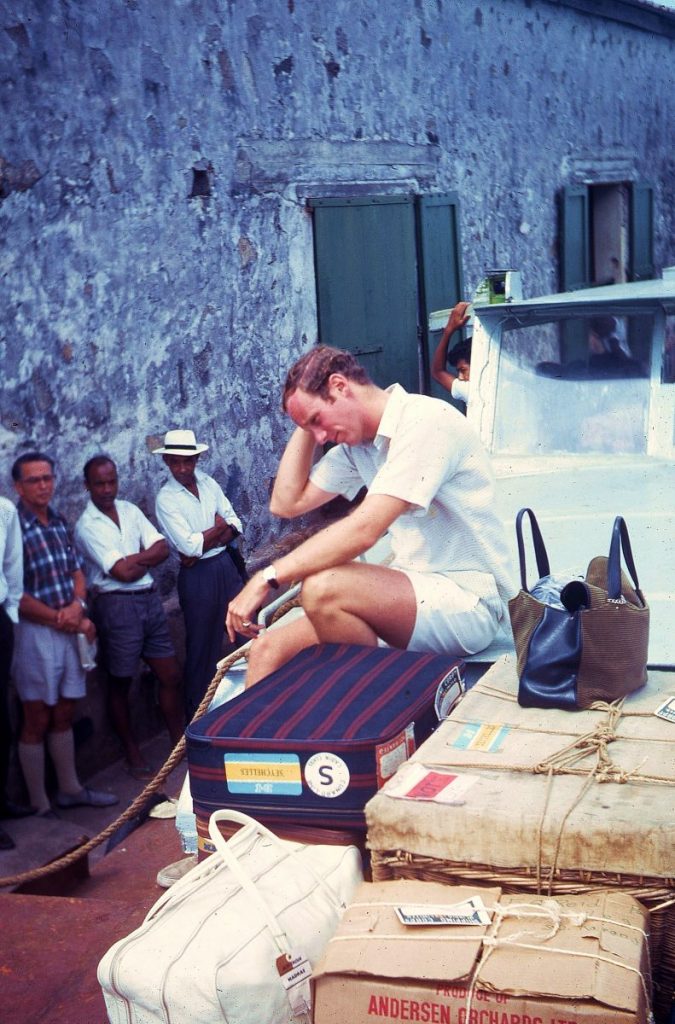
On the launch between the Long Pier, Mahe, Seychelles and an Indian ship at anchor bound for Mombasa.
The island chain was beautiful but with the only regular news access to the outside world, BBC Radio broadcasts, everything and everyone turned inward and life became a hierarchical interracial playground with the same participants day in and day out. The lucky ones amongst the Europeans had short-term contracts, yet long-term island living seemed suited to some.
Emigrating
The remaining ships were also rich cultural experiences because of those who were traveling mostly for reasons other than pleasure. Colonialism was rapidly receding, and many had left their jobs and home in East Africa and were heading for somewhere to settle.
Where they planned to go to begin a completely new life varied widely, but as most were English-speaking, the favored choices were Britain, South Africa, Rhodesia, Australia or New Zealand. Some had connections in the arrival country and others none at all, but they had to give somewhere a chance. It was uncertain times for many especially if they had young children.

Left, one of three cabin mates and social hostess aboard the RMS Windsor Castle from South Africa to England. * Photo: Ship's Photographer
South Africans Scatter
On the leg from South Africa to England, there were lots of passengers my age who wanted to experience another country, the way I did when I chose to spend a year’s study program in Paris and another acquiring a master’s degree in London. New worlds opened up living on my own in modest digs, and in the first instance, having to cope with another language.
It took time but I thrived with the challenge, and the years abroad encouraged me to keep traveling when time and money permitted and to develop into a quasi citizen of the world.
Crossing the Line Ceremony
During the 18-day passage, I had a lot of great conversations amongst my age group. And as it turned out, being the only Yank aboard, the chief steward thought me an ideal choice to take part in the “Crossing the Line (Equator) Ceremony.” I had no idea what I was in store for but he indicated it would be fun and to be prepared for some roughhousing.
The four chosen were subjected to being plastered with all sorts of goo during a mock botched surgical operation, reprimanded for imaginary misdoings, seated in a barber’s chair and messed up some more, then catapulted backwards into the swimming pool to be attacked by London Bobbies.
All this was performed before several hundred cheering passengers. One thing I learned from a few sympathetic souls was you only have to partake once, then you are no longer a neophyte. Good to know, and that became handy when I was offered two more “invitations.”
What Now?
So what is all this leading to?
Well, when I go abroad now, I want to be truly in the country I am visiting whenever possible, and sometimes that works just fine and other times it can be very limiting when I don’t even know a smattering of the local language. I do okay with French, know railroad German (can get about by train), and understand a bit of Spanish because it is widely spoken where I live. I can at least pronounce the Cyrillic words and that then might reveal the meaning such as recognizing the correct metro stop in St. Petersburg and Moscow.
Today, with so many people speaking at least some English, you can often have successful conversations that broaden one’s knowledge of the “neighborhood.”
Making Choices
With QuirkyCruise hoping to help travelers find a small ship or riverboat to their liking, one needs to decide how deeply to venture into foreign territory. That means choosing a ship with an itinerary you like; one that may be populated with many foreigners. To broaden the situation beyond a Yank and foreigners, let’s also be inclusive with just the reverse.
Germans Visit the Upper Midwest
Let’s say you are a German who speaks some English and wants to go on an Upper Mississippi River cruise because the largest European nationality that populated parts of the Midwest were Germans. If you have done your homework, you will know that few of the descendants speak German today, because much of that settlement happened in the 19th century. Your facility with English will have to do, and you will be most likely sailing with mostly Americans traveling in their own country.
Your quest, if you work at it, will unearth some German heritage but you need to be ready for it to be an American atmosphere on board and likely many, after the initial polite exchange, will not want to bother to develop an ongoing conversation unless your English is pretty fluent. Keep at it, as some will respond, and if you are open minded, you can have a more in-depth experience, with minor hiccups, than if you traveled with an all-German tour group.
Countries Full of English Speakers
Europeans from countries with relatively small populations such as the Netherlands, Denmark, Norway, Sweden and Finland, tend to speak English and many with fluency, and it may only be some of the older generations that don’t.

Helsinki: Who speaks Finnish other than a Finn? So they learn English and maybe Swedish from the country next door. * Photo: Ted Scull
For Americans, Canadians, Brits, Irish, Australians, New Zealanders, and many Indians, that opens wide access to these countries, so when you want directions on a street in Sweden, find the right tram in Amsterdam, deal with the post office in India or order a meal in Finland, language will likely not be a barrier, though the name of the local fish may not translate at all.
After feeling comfortable that you are not alone with foreigners who don’t speak your language, you can relax and begin to chat with the locals to get a better understanding of their country. You may have to initiate the conversation, so get used to it.
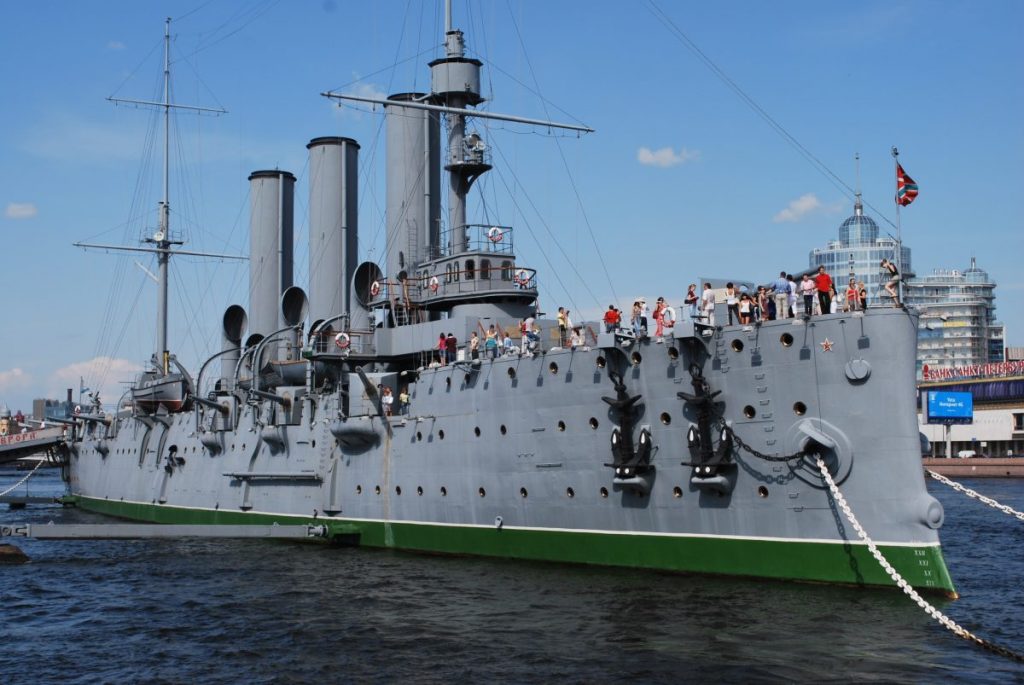
You might start with, “What ship is that?” Answer: Aurora – fired the first shot that signaled the start of the Russian Revolution. *Photo: Ted Scull
Returning to Your Roots
In the English-speaking world, Irish, Australians and New Zealanders, in particular, may have very recent connections to the country of their ancestors, so if they are genuinely interested in their homeland culture, they might think of researching a small ship or riverboat line that does not cater heavily to their nationality.
Small-ship travel can be a shared international experience and with most vessels having open seating, you may pick with whom you want to sit – your nationality or other English speakers. Then when you go ashore in your country of ancestry you are more likely to get more out of the visit than if you only palled around with your country folk aboard and ashore. You will have some experiences that are uniquely all your own.
Some Travelers Never Leave Home
One of my least successful riverboat experiences was sitting at a table (fixed seating) with just Americans, who never discussed what they had seen along the Moselle River or looked ahead to the next stop. It was all minutiae about home. I was traveling alone then and I was trapped. Eventually, someone acknowledged that I did not seem to be having a good time. How right they were, and happily I never faced that crushing confinement again.
A close second took place on a 14-day German riverboat sailing from Amsterdam, then across Germany and up the Elbe to Prague. The itinerary was outstanding but as a policy of fixed seating was in effect for all meals, my wife and I ended up having 42 meals with the same six people. Happily, one couple was a delight but…
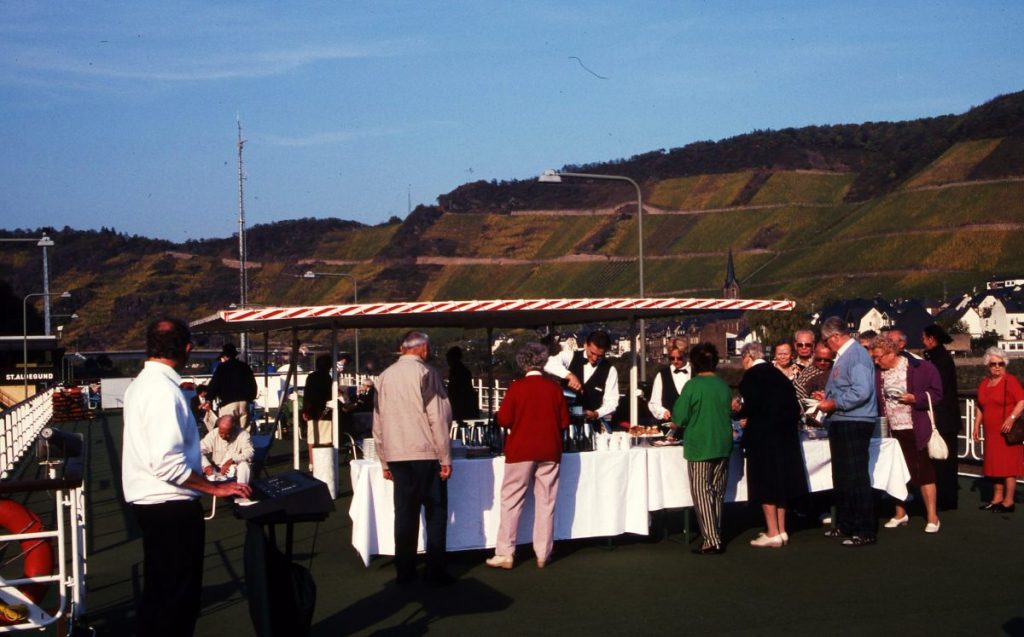
Happily, most riverboats have open seating and occasional buffet meals as here on the Moselle. * Photo: Ted Scull
Luckily, most riverboats offer open seating, and so you can go with your instincts when you are choosing table mates.
My wife and I often stand briefly at the entrance before agreeing on the target table.
Usually, we have made good choices.
Take Some Initiative Going Ashore
Going ashore is often a group experience, and your cruise may include all the excursions, so it makes monetary sense to join in. Then when you have free time, often before or after dinner, as the boat may be tied up for the night, go ashore again on your own or with your traveling companions and explore a neighborhood a bit away from the ship or sit at a café and take in the passing scene.
Travel to foreign parts can be as rewarding as you make it, and it requires some research to find the combination that delivers the experience you want. For some, it is staying with the foods you like at home, socializing with people just like you and being carefully shepherded so as not to get lost or confused by people who don’t speak like you.
At the other end, open up a bit and test the local food, look forward to meeting others from another country on the ship and ashore.
Don’t be too timid to break out from your comfort zone in a direction that looks interesting.
You may well come back feeling you have truly been somewhere different, and at enjoyed it at your own pace.
Father vs Mother
When we traveled abroad as a family, father would say, “Your mother likes to strike up a conversation with complete strangers. She is always talking to people.”
When I became less timid, sometimes I would follow her so I could see what I might learn. After she died, father would say when we were away from home and I struck up a conversation with a stranger, “You are just like your mother.”
By then, even if he was reticent to follow suit, I think he liked that I did because he saw I enjoyed it.
Travel is places and people.
Test the Waters
So, don’t be shy and give it a try — test the waters. Strike up a conversation with someone while sharing a meal or in the seat next to you on the coach. If it does not work the first time, look to a second try. You never know what and who you might be missing out on unless you make a little effort.
For some this is a cliché, but Churchill’s pronouncement that Brits and Yanks are separated by a common language is quite true. That may also include Irish, Scots, Aussies, and Kiwis (New Zealanders). Some expressions may be understood right away if they are in context and some not.
Where’s the loo? She’s wasted and he’s hammered. That’s fair dinkum. Do you wear a singlet?
The mozzies are bad tonight. Crack on. He’s a real whinger. Now archaic, let’s go to the bioscope.
Joining a QuirkyCruise ship
While many lines attract an international mix of passengers, the exact demographics will vary.
Here’s a look at some small-ship lines we cover and very roughly who represents their main clientele.
Line & Dominant Nationalities
American Cruise Lines — North Americans
Aurora Expeditions — Aussies & Kiwis
Australis — Europeans & South Americans
Blue Lagoon Cruises — Aussies & Kiwis
Blount Small Ship Adventures — North Americans
Captain Cook Cruises — Aussies & Kiwis
Compagnie Polynesienne (Aranui) — French, Germans, Aussies & Kiwis
CroisiEurope — French & other Europeans
Coral Expeditions — Aussies & Kiwis
Deep Blue Holidays — English speaking & International
Emerald Waterways — Aussies & Kiwis
Gota Canal Steamship Company — Europeans
Hapag Lloyd — German-language-only cruises on some ships with one catering to English speakers
Hurtigruten — Norwegian Coastal Cruises & Antarctic Expeditions – Europeans
Lindblad Expeditions — North Americans
Murray River Cruise — Aussies & Kiwis
Pandaw River Cruises — Europeans, Aussies & Kiwis
Patricia Cruises — Brits
Paul Gaugin Cruises — French & English speakers
Pitcairn Island Link — Variety of English speakers
Ponant — French but not when the ship is chartered for English speakers
Riviera River Cruises — British
Scenic — Aussies & Kiwis
Scotland’s small ships: Argyll Cruising, Hebrides Cruises, Hebridean Islands Cruises, Magna Carta Steamship Company, The Majestic Line, Puffer Steamboat Holidays, St. Hilda Sea Adventures, Trinity Sailing — Mostly British
Sea Cloud Cruises — Germans and English-speaking charters
Sea Trek Sailing Adventures — English speaking & International
Silhouette Cruises — English speaking & international
Silolona Sojourns — English speaking & international
UnCruise Adventures — North Americans
Victoria Cruises — English speaking & international
© This article is protected by copyright, no part may be reproduced by any process without written permission from the author. All Rights Reserved. QuirkyCruise.com.

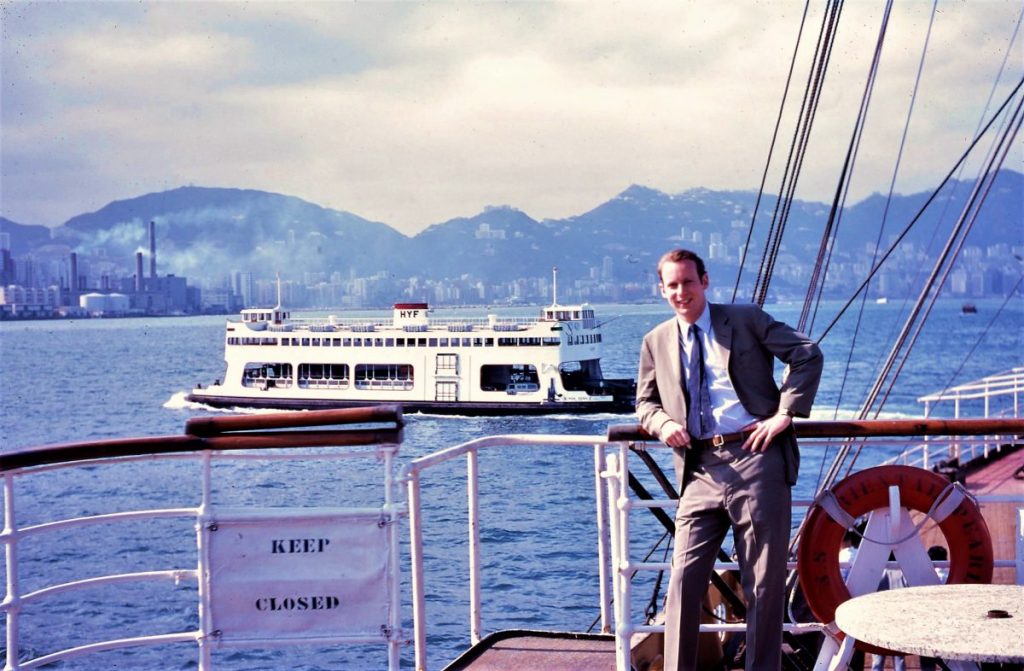

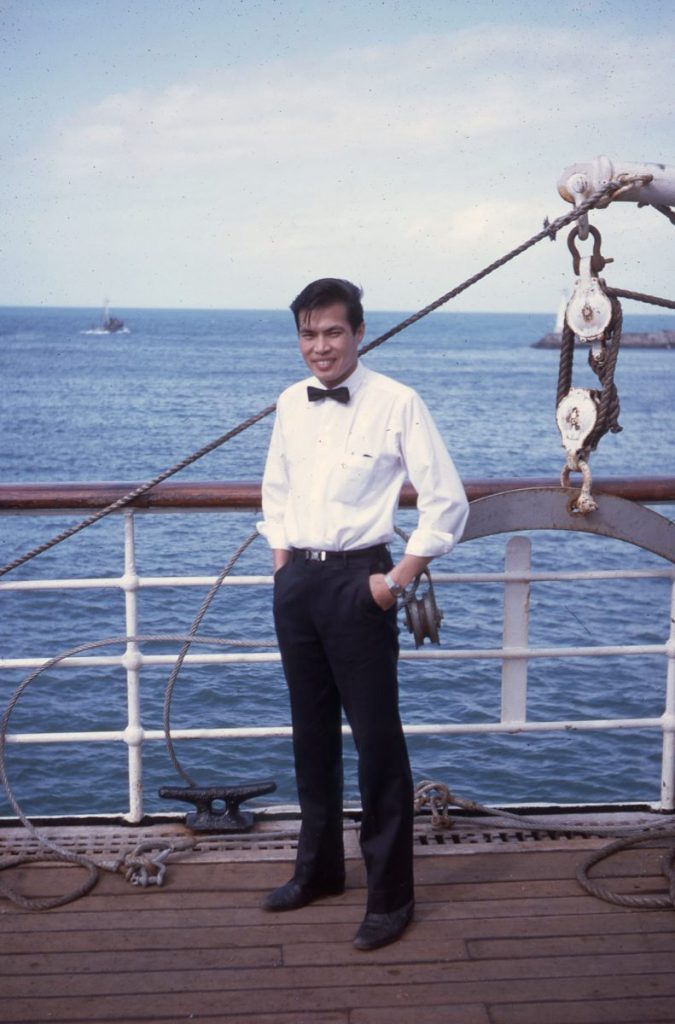
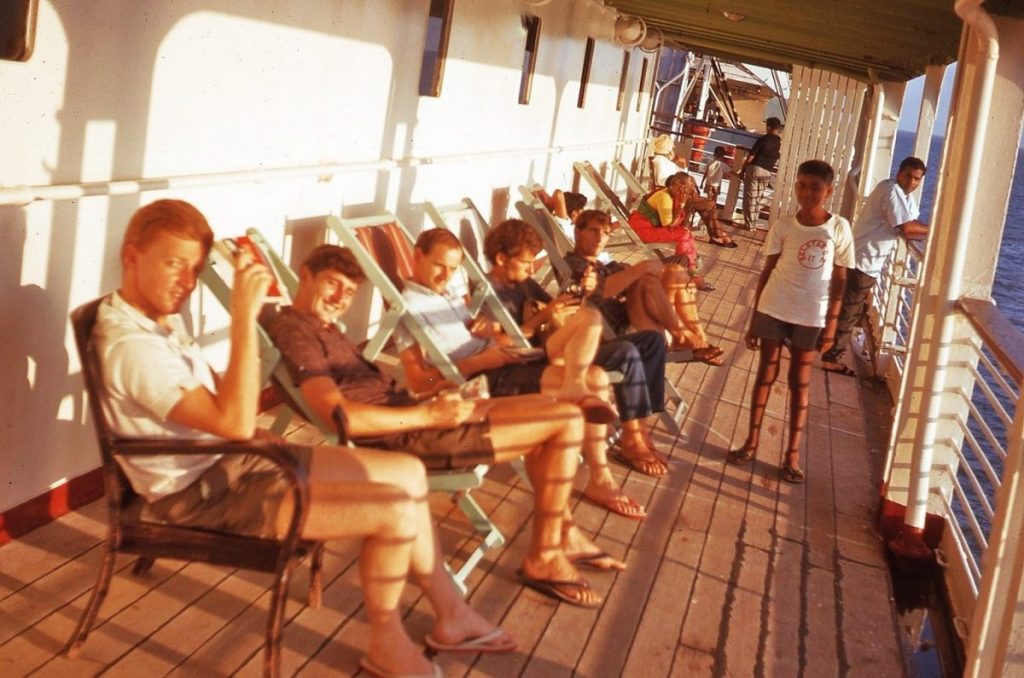
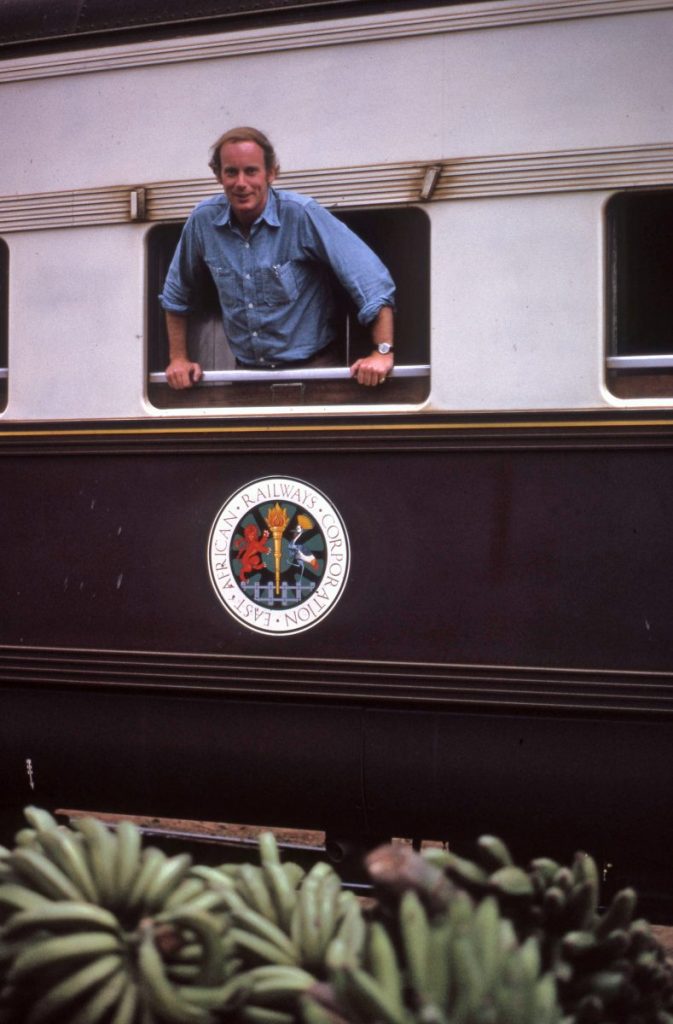
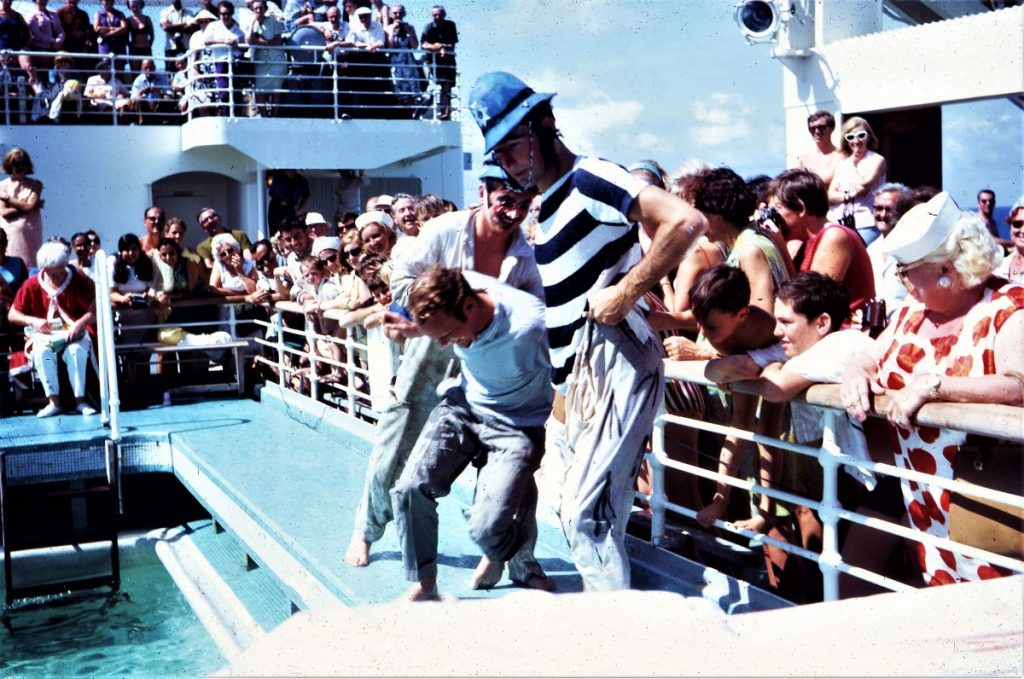
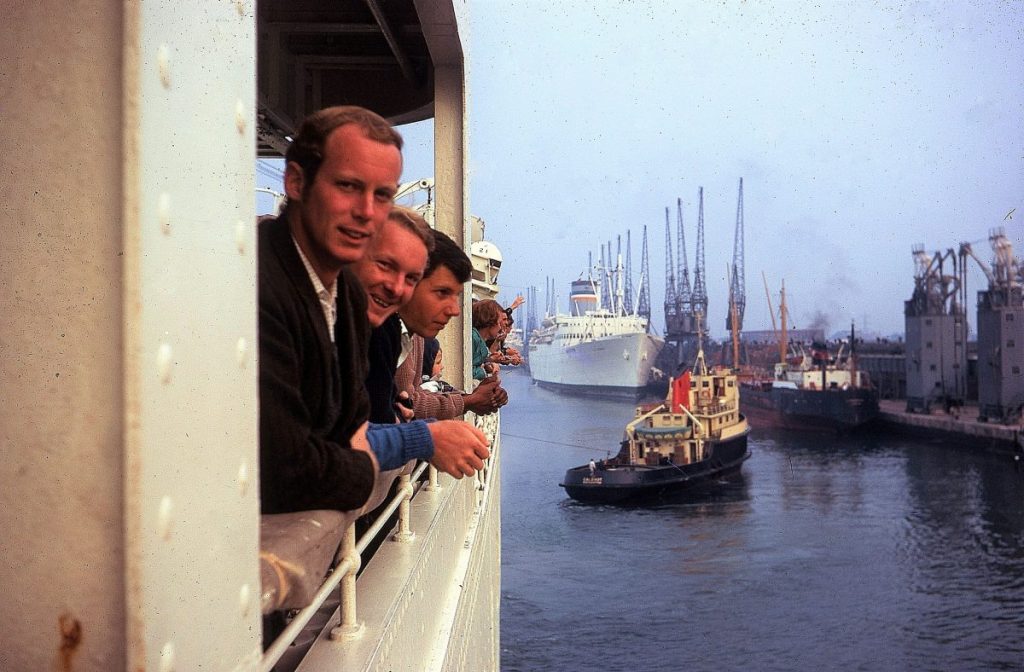
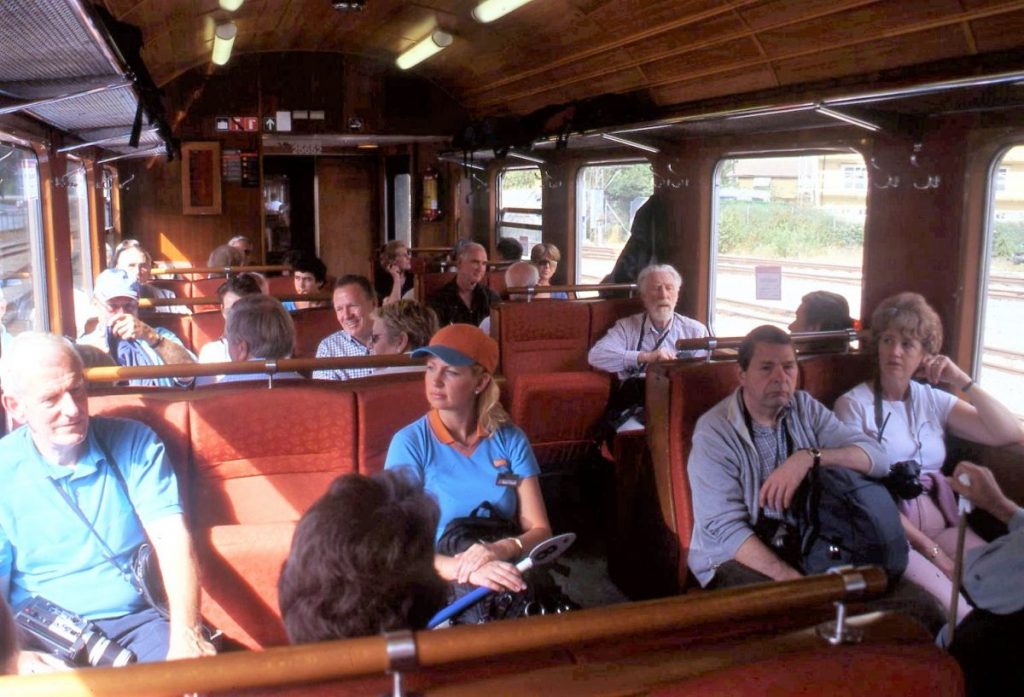
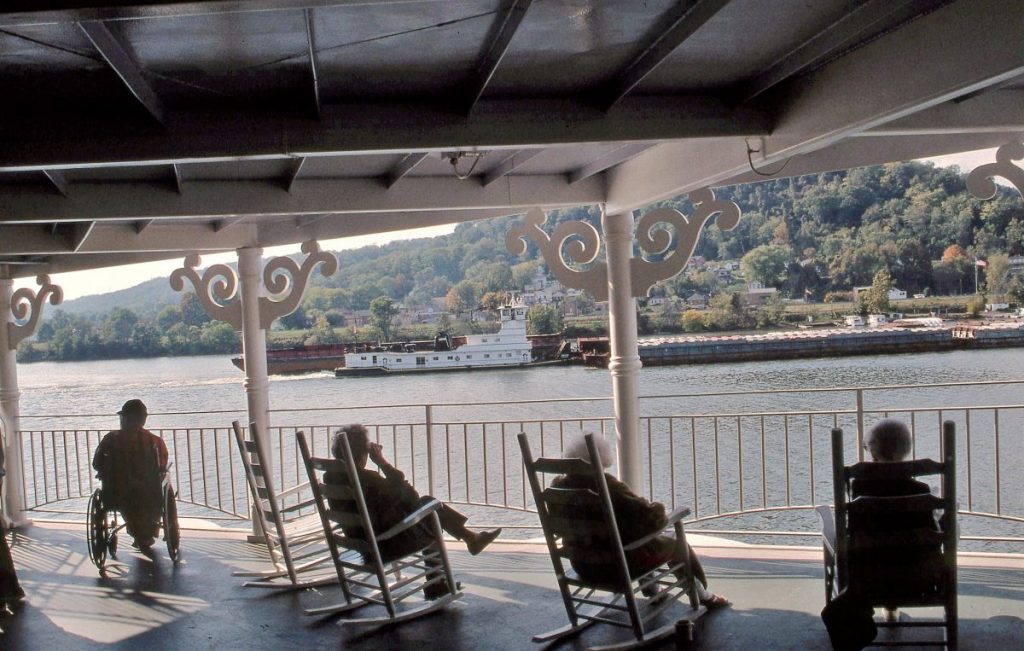


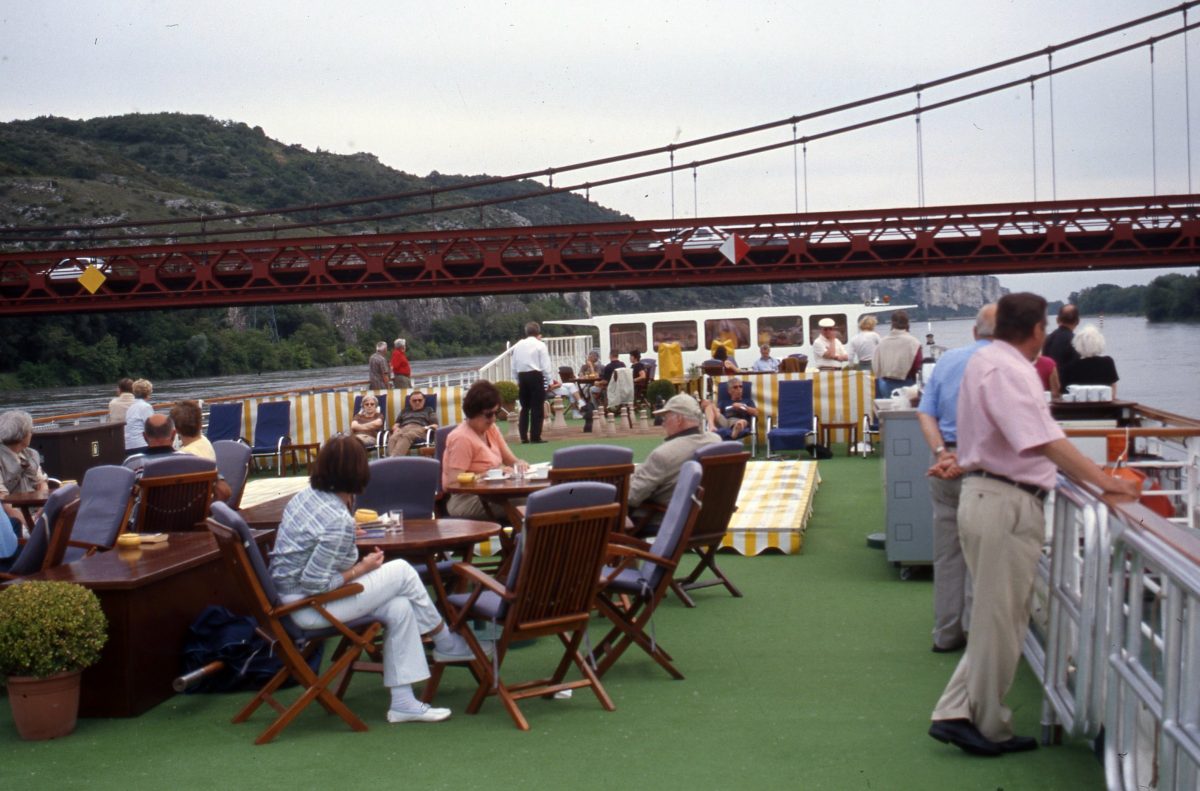
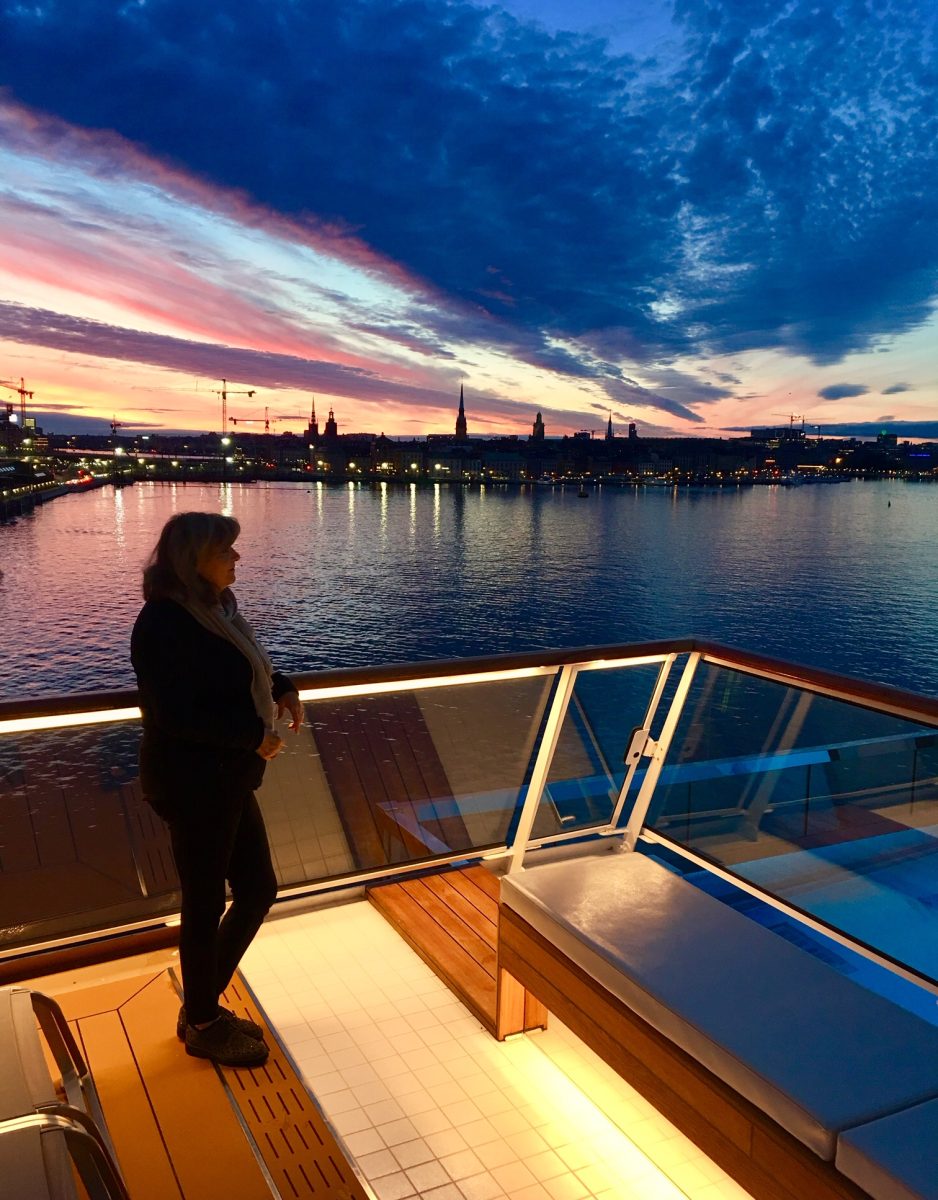
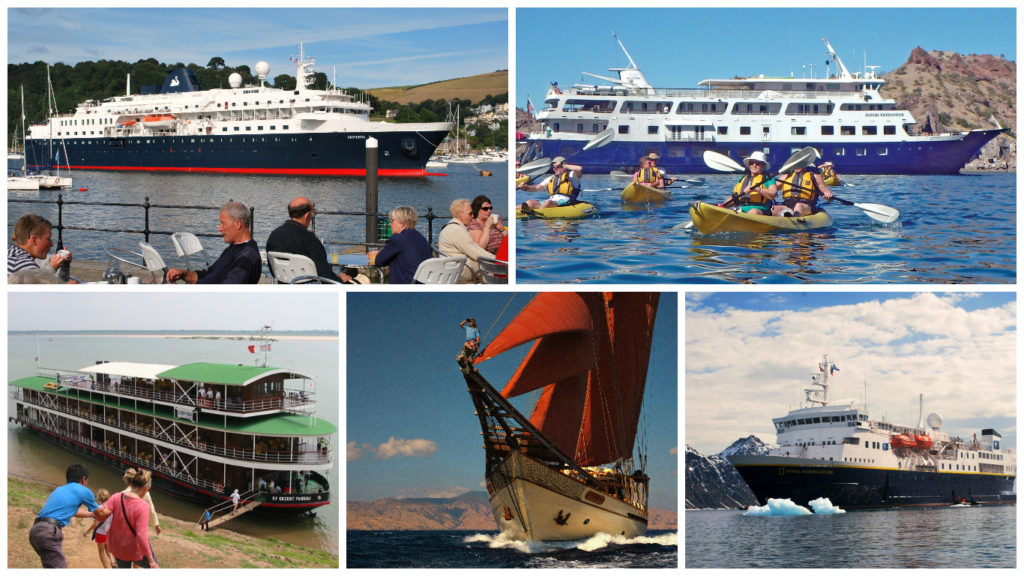
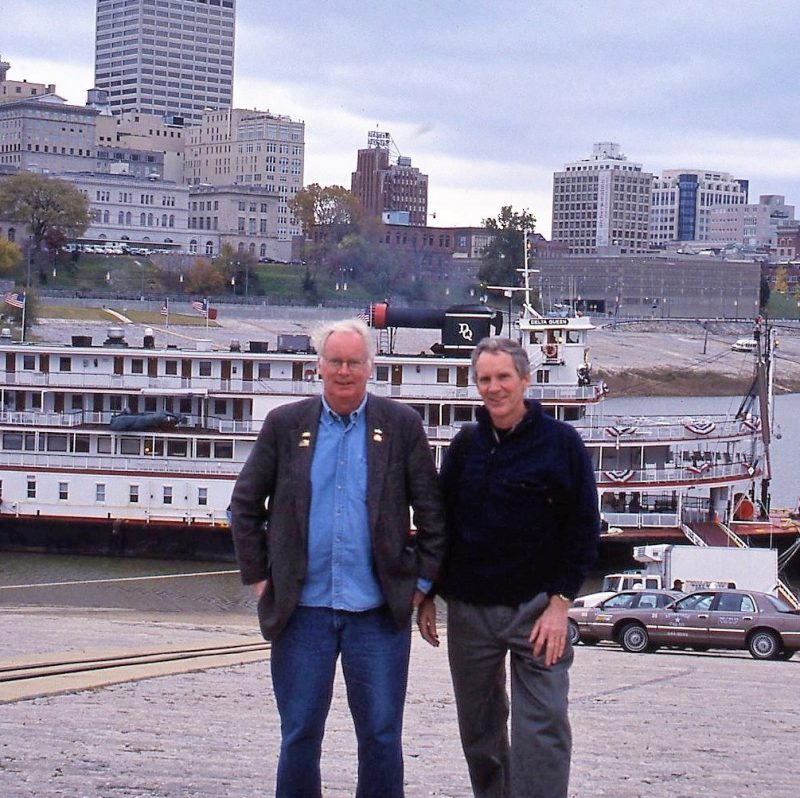
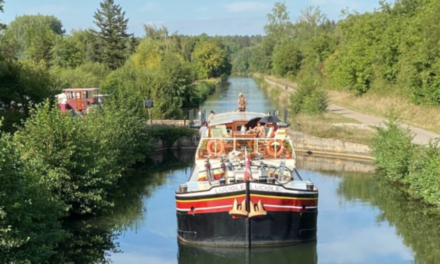
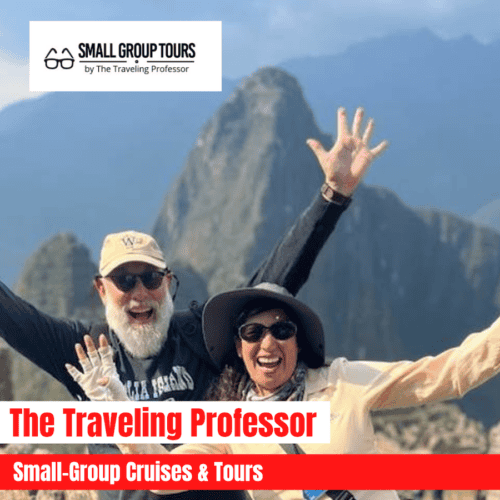
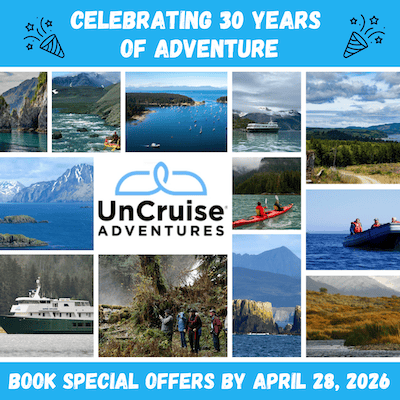
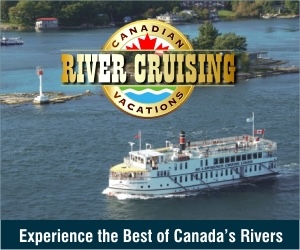

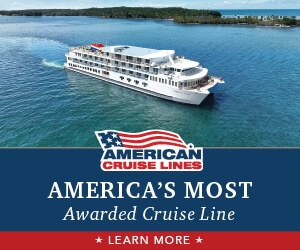
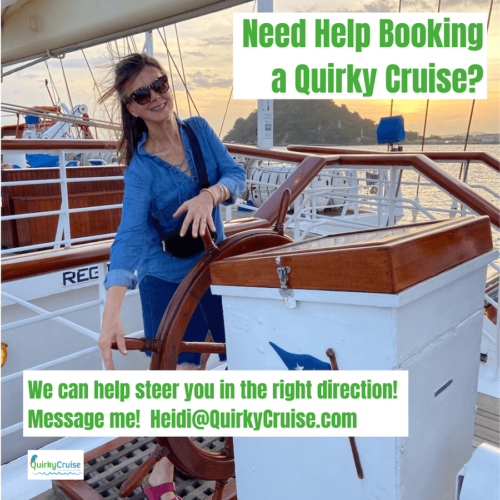



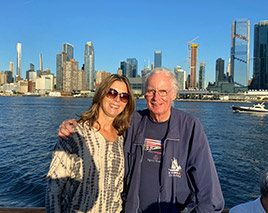 HEIDI SARNA
HEIDI SARNA
